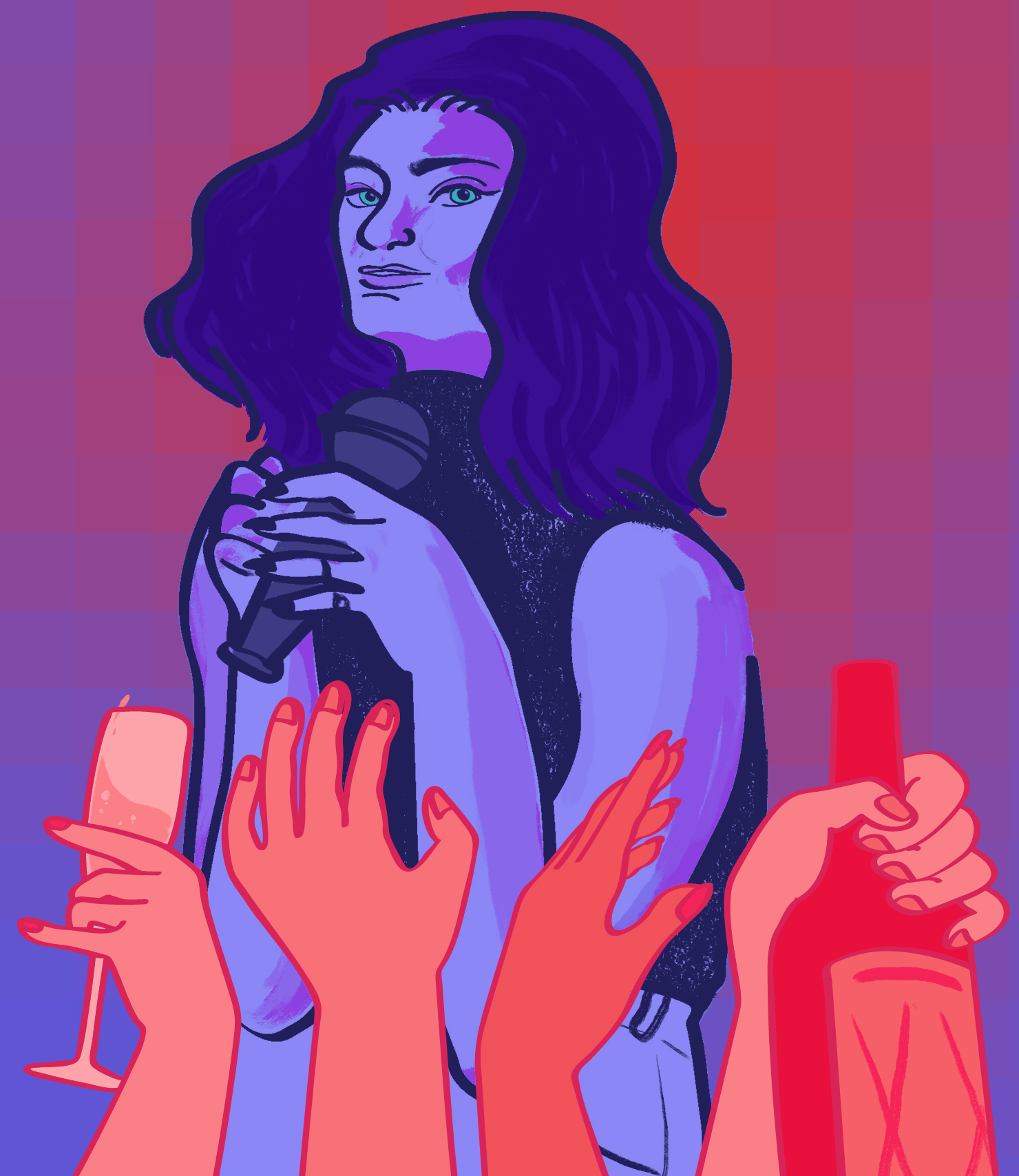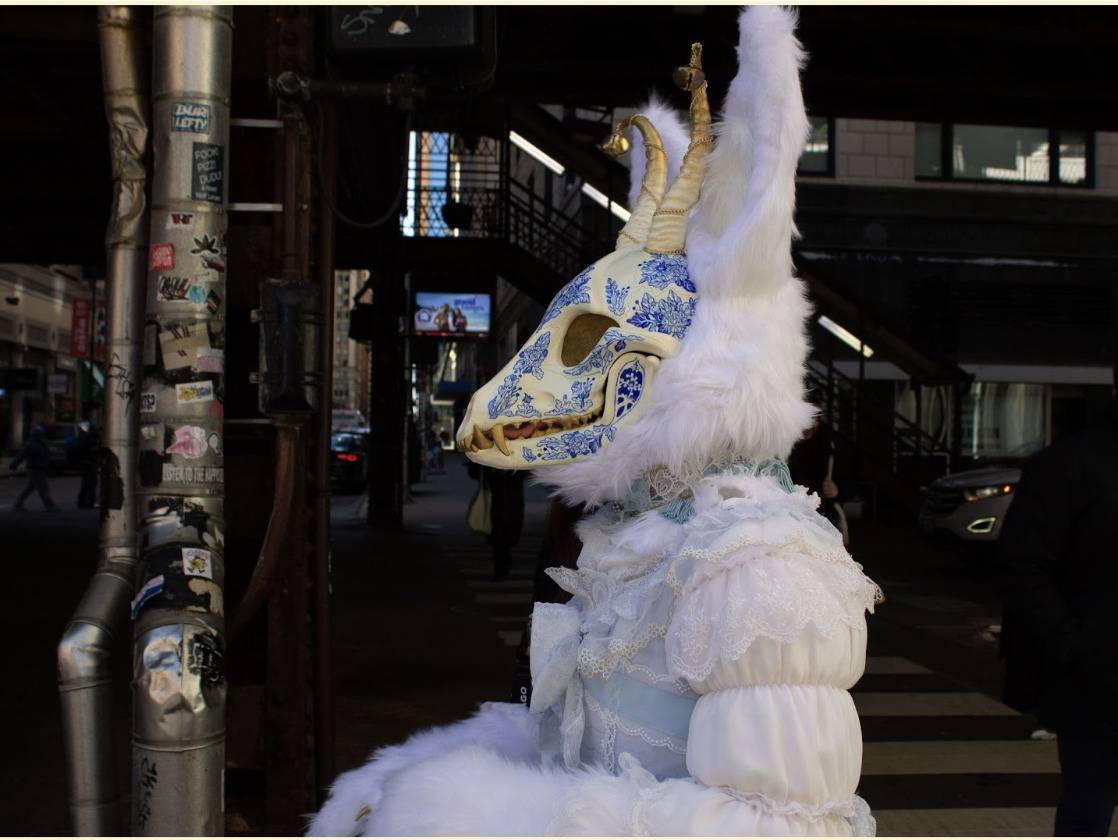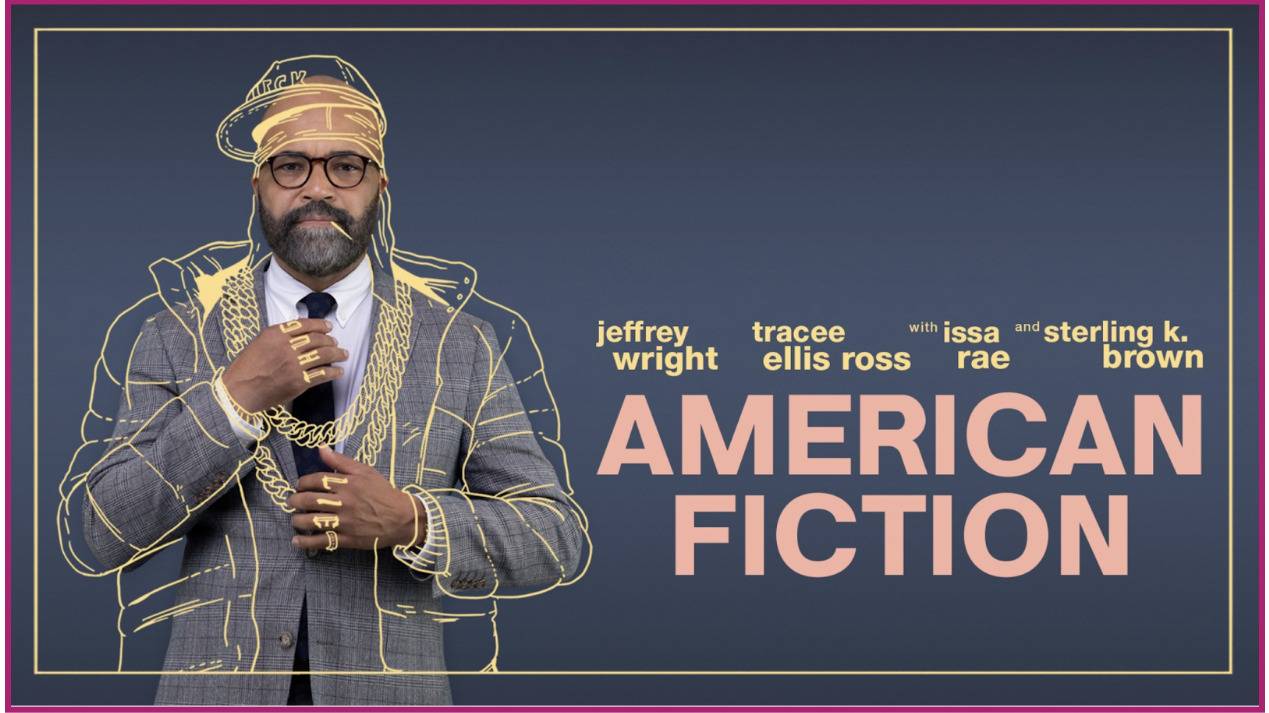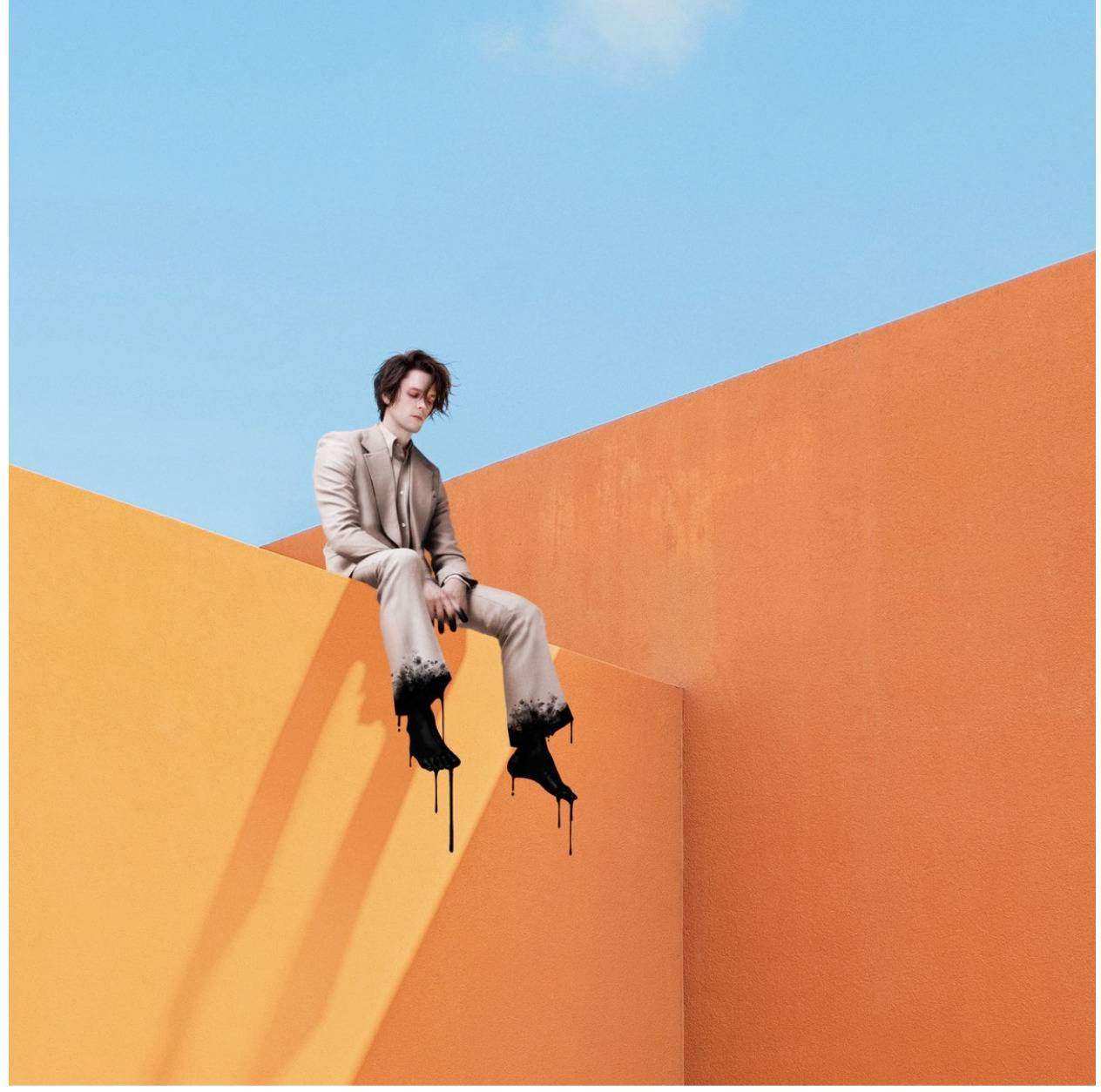
Illustration by Sacha Lusk.
It took Ella Yelich-O’Connor three years to craft her sophomore album, “Melodrama.” During those three years, she relocated from New Zealand to New York, started writing with Bleachers’ frontman Jack Antonoff, and took some much needed time to herself.
Her first album,“Pure Heroin,” was both a record and a social debut. The record itself sold over one million copies within the first five months of its release; it snagged her a slot performing at the 2014 Grammy’s, a Coachella set, and ample praise from the late David Bowie, who told her that listening to her music felt like “listening to tomorrow.”
With her unconventional dance moves and unabashed love of literature and art, Lorde quickly established herself as the popstar for the weird kid in the back of the class. She was a little bit goth, a disciple of Stevie Nicks, and an articulate and thoughtful lyricist. Tracks like “Ribs” and “400 Lux,” detailed the vacuum intensity of suburban teenage friendships; they were microcosms of Lorde’s own teenage experiences and that specificity somehow segued into universality.
The end of “Ribs” is almost panicked in its closeness: “You’re the only friend I need/ sharing beds like little kids/ we laugh until our ribs get tired/ but that will never be enough.” As a teenager, I loved Lorde’s songs because they felt familiar, because somehow, even if she was hanging out with Bowie, they were still grounded in the mundane. However, with “Pure Heroine,” there always seemed to be a wider world that existed just beyond the record’s periphery — a world that Lorde was just barely starting to explore.
“Melodrama” is an album about introspection, but it’s also an album about shifting: Shifting thoughts, priorities, parameters of intimacy. Lorde describes “Melodrama” as “a record about being alone. The good parts and the bad parts.” Narratively, the record charts the trajectory of a single house party — all the spilled drinks and ill-thought hookups that one night can entail.
In the first line of “Green Light,” we learn that Lorde is on the move: “I do my makeup in/ somebody else’s car.” Lorde is no longer trapped in the confines of a New Zealand suburb. She’s kinetic, and you can hear it in the music. There is a pulse in “Green Light” that is absent from her previous work. As the beat builds, Lorde establishes herself as a genuine master of pop tracks, the synths and piano mingle in a shimmer of sound, and by the time the chorus hits it’s sublime.
The eventual key change is like sonic Instagram slime, a little strange and a little senseless, but full of spine-tingling satisfaction. Pop writer Max Martin, who has co-written songs for Britney Spears and the Backstreet Boys, referred to “Green Light” as “incorrect song-writing,” but that just makes it even more wonderful — a pensive pop banger that defies rules and industry standards.
Lorde’s reverence for pop music is still intact, however. She told Jonah Martin of the New York Times: “A lot of musicians think they can do pop, and the ones who don’t succeed are the ones who don’t have the reverence — who think it’s just a dumb version of other music. You need to be awe-struck.”
“Melodrama” is a record that will leave the listener firmly awe-struck. If “Pure Heroine,” was a record of suburbs and and teenage daydreams, then “Melodrama” is a record of the world. There’s a newfound awareness that doesn’t appear jaded, even in post break-up tracks like “Liability” or “Loveless.”
The solitary moments of the record are incendiary. “Writer in the Dark” could stand side by side with a Kate Bush track. Lorde’s sing-song vocals vacillate between a joke and a lament, coupled with listless piano and a string-soaked chorus. Lorde wails,”I am my mother’s child/ I’ll love you ‘till my breathing stops/ I’ll love you ‘till you call the cops on me.”
In “Supercut,” Lorde ruminates on the exact moment of rupture in a relationship singing, “In my head I do everything right/ when you call/ I forgive/ and I fight,” beneath scintillating synths. In the bridge Lorde breaks, throwing the “h” in “heart” into a yell. It’s introspective moments like these that anchor the record, but the moments of connection are also lush and beautiful.
“The Louvre” details the initial overpowering magic of a new relationship as Lorde sings, “blow all my friendships/ to sit in hell with you.” It’s the perfect summer fling anthem; this song wants joy to consume you, with tight anticipatory guitar riffs. The final chords segue into triumphant synth-y chords, like a true eighties power ballad. Best Coast’s Bethany Consentino called the track, “The song of my angst-y teenage girl dreams,” on her Twitter.
Still, there is an ever-present loneliness throughout this record. It clings to the tracks like hints of incense on a thrift store dress. So much of this record follows Lorde in her home or other private spaces, whether she’s dancing alone in “Liability” or putting “flowers in all my rooms” in “Hard Feelings.”
The final track, “Perfect Places,” is the antithesis of top 40 live-fast-die-young teen anthems. It’s a song about the imperfect refuge of a party. As Lorde explained: “Another big realization of the last year for me. I think I’m partying so much because I’m just dreading sitting at home by myself hearing my thoughts hit the walls.’” This anxiety towards loneliness is the crux of “Melodrama.” We can party and fill our lives with senseless hook-ups, but that won’t fix everything. “Melodrama” is a record about learning to live with uncertainty, because, really, what the fuck are perfect places?





















